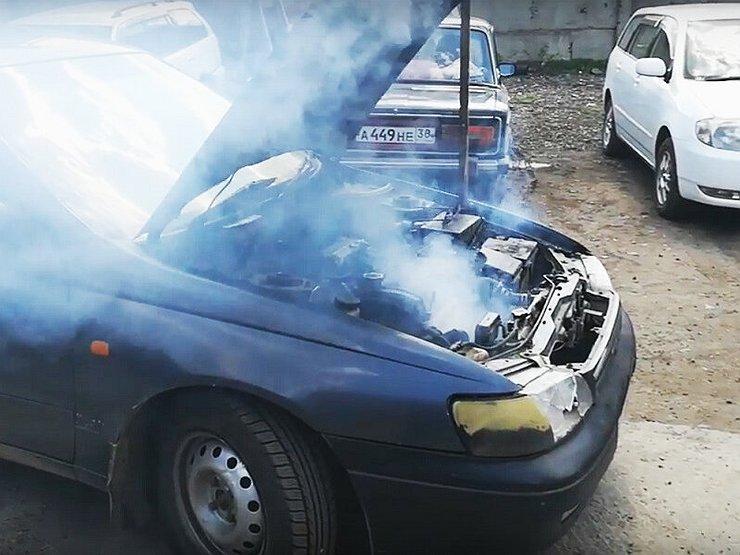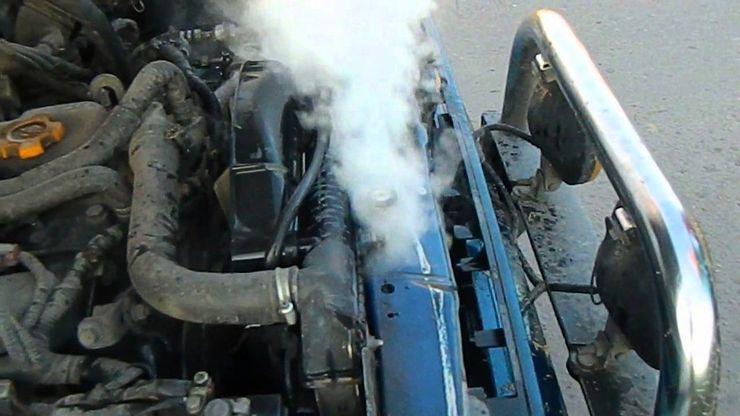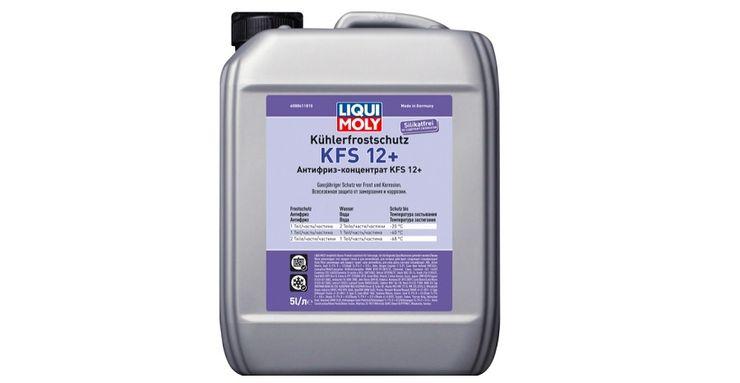
Why can the engine suddenly “boil” due to the cold
In winter, the car engine can overheat as well as in summer. Unfortunately, many drivers do not know about this and believe that in cold weather you don’t have to worry about engine cooling. The AvtoVzglyad portal tells about the reasons for which the engine can boil in a fierce cold.
It would seem that determining overheating is very simple. To do this, just look at the coolant temperature indicator, which is located on the instrument panel. The only problem is that the temperature sensor can fail. In this case, on many models, a situation is obtained when the arrow of the temperature gauge shows that everything is normal, and the motor starts to boil.
It remains to figure out why the engine boils when it's cold outside. One of the most common causes is due to improper replacement of antifreeze. The fact is that when changing the liquid before the start of the winter season, many motorists choose a concentrate that needs to be diluted with distilled water, but they make mistakes in the proportions and add more water.
As a result, the water evaporates, while it is difficult to feel it. Especially if you drive a lot on the highway. After all, the radiator is perfectly blown by cold air, and there will be no overheating. Another thing is a city where overheating is immediately noticeable - after all, there is no engine cooling in a traffic jam, and the amount of antifreeze in the system is not enough.

Improper care of the radiator is also a common cause of overheating. Its cells can be clogged with dirt and fluff, and if they are not cleaned, there will be a risk of heat transfer disruption. It is worth remembering that there are several radiators in the car. And if one of them has good access, then the others, as a rule, are very difficult, and dirt cannot be removed without dismantling. Therefore, it is better not to take risks and thoroughly clean the radiators of the air conditioner, gearbox and engine before the cold weather.
Keep in mind that the cardboard that many drivers are used to putting in front of the radiator can play a cruel joke. In severe frost, it will help, but in a weak one it will become an additional obstacle to airflow, which will lead to problems with the motor, especially in the city.
Finally, another reason that appears due to ignorance or the desire to save money. The driver changes antifreeze for cheap or, again, diluted with water. As a result, in frost, the liquid thickens and loses its properties.

Finally, a few words about the choice of antifreeze. It is known that many drivers prefer to buy a finished product. However, experts recommend using a concentrate. Remember: after flushing the cooling system, up to one and a half liters of non-draining residue remains in it. Ready antifreeze, mixed with it, will lose its original characteristics. To exclude this, it is necessary to apply a concentrate, and according to a certain scheme.
More specifically, first it is poured in the desired proportion to the volume of the cooling system. And then add distilled water, bringing the antifreeze to the required "low temperature" concentration. This is exactly how, by the way, the experts of the AvtoVzglyad portal acted when replacing antifreeze on an editorial car. For this, the popular product Kühlerfrostschutz KFS 12+ from Liqui Moly was used, which is distinguished by improved anti-corrosion properties and a long (up to five years) service life.
The composition meets the requirements of most well-known automakers and was specially created for highly loaded aluminum engines. The antifreeze made on its basis can be mixed with similar G12 class products (usually painted red), as well as with G11 specification fluids containing silicates and complying with the VW TL 774-C approval.

